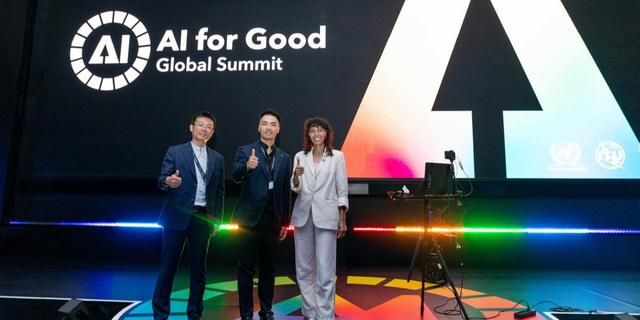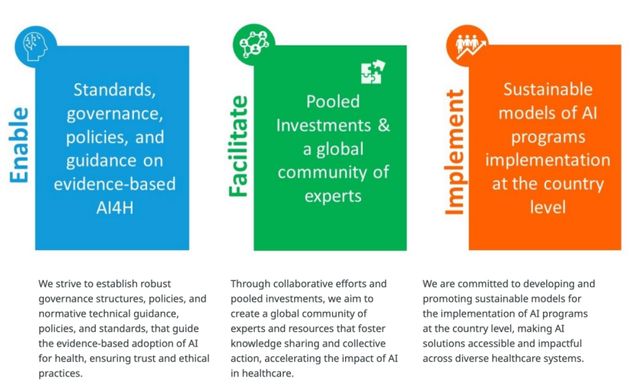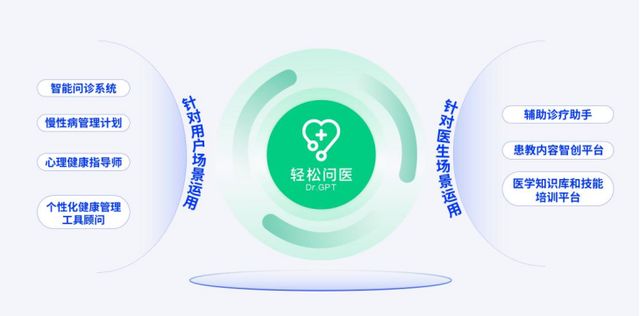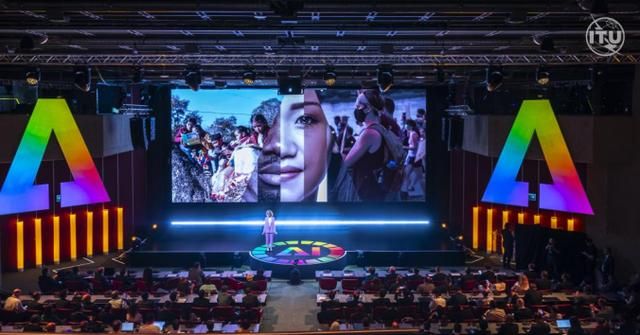QingSong Health appeared at the World Summit of the Information Society to explore the road to good AI
2024-06-03

The high-level event of the World Summit on the Information Society (WSIS) +20 Forum was held in Geneva, Switzerland, from 27 to 31 May. The event is co-hosted by the International Telecommunication Union (ITU), the United Nations specialized agency for information and communication technologies, and the Swiss Confederation, and co-organized by the United Nations Educational, Scientific and Cultural Organization (UNESCO), United Nations Development Programme (UNDP) and the United Nations Conference on Trade and Development (UNCTAD). As the Chinese health technology platform participating in this event, QingSong Health presented the practical application of AI in the field of health to the world at the AI for Good Global Summit, and discussed with cross-racial guests on how AI can achieve inclusive development.
The high-level event of the World Summit on the Information Society (WSIS) +20 Forum marked an important milestone in the 20 years of progress in the implementation of the WSIS outcome, and was attended by the heads of communications ministries from all countries. Twenty years ago, the World Summit on the Information Society established a framework for global digital cooperation with the vision of a people-centred, inclusive and development-oriented information and knowledge society.
The AI for Good Global Summit, a collaboration between the ITU and 40 sister UN agencies, was held at the same time. First held in 2017, the summit aims to explore practical applications of AI, expand the global impact of AI solutions, and accelerate the achievement of the United Nations Sustainable Development Goals. The participants included representatives from international organizations, academia and industry, including UN Secretary-General Antonio Guterres, ITU Secretary-General Doreen Bogdan-Martin, Turing Award winner Jeffrey Hinton, OpenAI CEO Sam Altman, and others.
At the Global Summit on Artificial Intelligence for Good held in July last year, the three specialized agencies of the United Nations (UN), the World Health Organization (WHO) and the International Telecommunication Union (ITU) jointly issued the Global Initiative on Artificial Intelligence for Health (GI-AI4H), and set up a special group to address macro issues such as regulation and ethics. Vertical medical application issues such as cardiology, dermatology, and dentistry develop framework standards to promote the safe and effective application of AI in healthcare.

One year later, AI has made further development on a global scale, and has achieved a lot of application results in the field of health. Speaking about the opportunities and ethical challenges faced by artificial intelligence, Ma Xiaowu, executive vice president of QingSong Health, said that AI plays a positive role in promoting more accurate diagnosis, more personalized treatment plans, and higher medical efficiency. However, health is related to everyone's life, and health data is very private personal data, and the application of AI in the health field should pay attention to challenges such as patient data protection and health decision-making errors caused by potential biases in artificial intelligence algorithms. He introduced that in addition to helping doctors provide patients with more accurate and personalized medical advice, "QingSong Dr.GPT", a large model developed by Qing Song health, also plays a role in enhancing the capabilities of various participants in the medical industry chain.

And the origin of all technology is patient centered. In terms of patient services, QingSong Health generates multi-dimensional health files for users through AI technology, and provides assistance for users in disease prevention and chronic disease management; In terms of digital health care, QingSong Health, together with pharmaceutical companies, uses AI technology to play a role in clinical trial patient recruitment, trial data management and analysis, accelerating drug development and reducing costs; In terms of marketing and operations, Dr.GPT provides content review, fraud detection, risk management, precision marketing and other services for corporate partners.

Aiming to accelerate the UN's Sustainable Development Goals, the forum also discussed how AI can work for all to achieve inclusive development. Ma Xiaowu said that it is necessary to promote the reasonable sharing and utilization of health data through policy guidance, and increase investment in artificial intelligence technology in primary medical care and remote areas, reduce the gap in health services caused by technological differences, and allow more people to benefit. QingSong Health has contacted thousands of hospitals and tens of thousands of doctors in cities and counties at all levels in China. Since the development of artificial intelligence, QingSong Health has developed AIGC tools specifically for doctors to help doctors and medical researchers generate educational content on a large scale and disseminate health knowledge and insurance knowledge, and has created nearly one million pieces of creative content.
As an important player in the framework of global digital cooperation, the QingSong Health has contributed valuable experience to building an inclusive and developing information society with its deep insights and cutting-edge practices in the field of AI. Looking ahead, we firmly believe that QingSong Health will continue to play its advantages in the field of health, constantly explore new technologies and new applications, and inject more vitality into global digital cooperation. At the same time, we also look forward to more transnational cooperation to jointly promote the development of artificial intelligence for the better and contribute more to the realization of the Sustainable Development Goals of the United Nations.